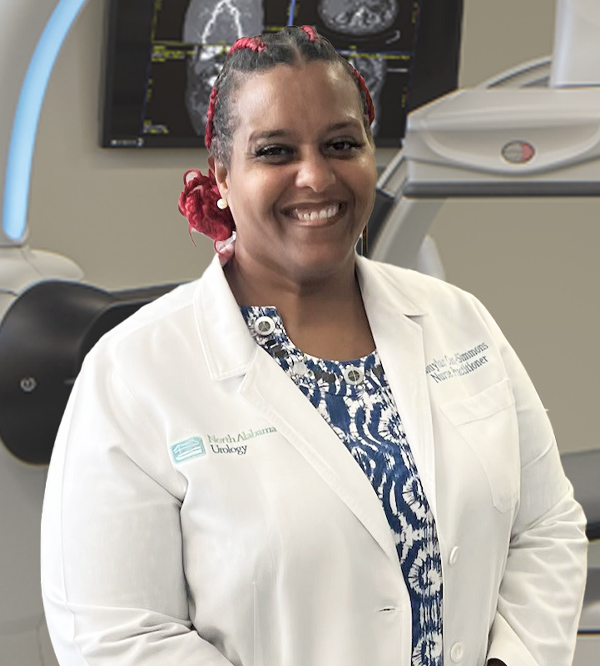Urology
We specialize in treating patients with a wide range of urologic conditions. With in-depth experience in a variety of urologic procedures, our talented team provides high-quality care for patients with advanced and difficult cases. Focused on treating each patient as a whole person, we strive to deliver the highest level of care in the region.
We we utilize state-of-the-art diagnostic equipment and advanced treatment techniques including minimally invasive surgery to bring a tailored approach to each patient and their specific needs.
Take a Bladder Health Assessment
If you have questions about your bladder health, start with an assessment and learn more about any risks you may have for bladder-related conditions.
Take a Prostate Health Assessment
If you have questions about your prostate health, start with an assessment and learn more about any risks you may have for prostate-related conditions.
Urology Locations
Urology Providers
BPH (Benign Prostatic Hyperplasia)
What is BPH?
Benign Prostatic Hyperplasia, or BPH, is a condition in which the prostate enlarges as men get older. BPH is a very common condition that affects over 40 million Americans and over 500 million aging men worldwide. Over 40% of men in their 50s and over 70% of men in their 60s have BPH(1). While BPH is a benign condition and unrelated to prostate cancer, it can greatly affect a man’s quality of life.
As the prostate enlarges, it presses on and blocks the urethra, causing bothersome urinary symptoms such as:
- Frequent need to urinate both day and night
- Weak or slow urinary stream
- A sense that you cannot completely empty your bladder
- Difficulty or delay in starting urination
- Urgent feeling of needing to urinate
- A urinary stream that stops and starts
If you suffer from the above symptoms, you are not alone. BPH is the leading reason men visit a urologist(2). You can measure the severity of your BPH symptoms by taking the International Prostate Symptom Score (IPSS) questionnaire.
1. Berry, et al., Journal of Urology 1984
2. IMS Health NDTI Urology Specialty Profile Report 2013 The UroLift® System Treatment
What is the UroLift System?
Treatment with the UroLift® System uses a minimally invasive approach that provides rapid relief and recovery of BPH symptoms(1). It is an earlier treatment option can get men off BPH medications and avoid major surgery. The goal of the UroLift System treatment is to relieve symptoms so you can get back to your life and resume your daily activities.
The UroLift® System treatment has demonstrated a significant improvement in quality of life for patients compared to medications(2,3). The UroLift® System is the only BPH procedure shown not to cause new and lasting erectile or ejaculatory dysfunction*, while being a safe and effective treatment of lower urinary tract symptoms due to BPH(1, 3-6).
How Does The UroLift® System Work?
The UroLift® System uses a revolutionary approach to treating BPH that lifts and holds the enlarged prostate tissue so it no longer blocks the urethra. It is the only available BPH treatment performed by a urologist that does not require heating, cutting, or removal of the prostate tissue. The procedure is typically performed using local anesthesia in a physician’s office or ambulatory surgery center. Patients typically return home the same day without a catheter(1).
Kidney Stones 101
Kidney stones impact between 10 and 15 percent of the United States’ population.
How do you get kidney stones?
They begin when urine becomes supersaturated, resulting in the formation of salts, which develop into crystals. Once a crystal is formed, it spurs more crystal formation, resulting in growth and eventually formation of a kidney stone.
What do kidney stones look like?
There are many different types of kidney stones. In general, about 75 percent of kidney stones are calcium-based. Regardless of the type, most stones are treated the same. However, the type does help us tailor dietary alterations or medications to help prevent recurrence of stones.
What causes kidney stones?
Diet and genetics are the two biggest risk factors, but there are several others:
- Gender. Historically, men are two to three times more likely to get stones than women.
- Race. Caucasians are more likely to develop kidney stones.
- Age. Stone occurrence peaks in people aged 35-45 years.
- Geography and climate. Areas with hot and dry climates tend to have a higher incidence of stone disease.
- Chronic dehydration. Chronic lack of appropriate fluid intake.
- Presence of metabolic syndrome. A condition characterized by a cluster of disease processes including high blood pressure, high blood sugar, excess body fat and abnormal cholesterol levels.
The following may be signs of kidney stones that need a doctor's help:
- Extreme pain in your back or side that will not go away
- Blood in your urine
- Fever and chills
- Vomiting
- Urine that smells bad or looks cloudy
- A burning feeling when you urinate


